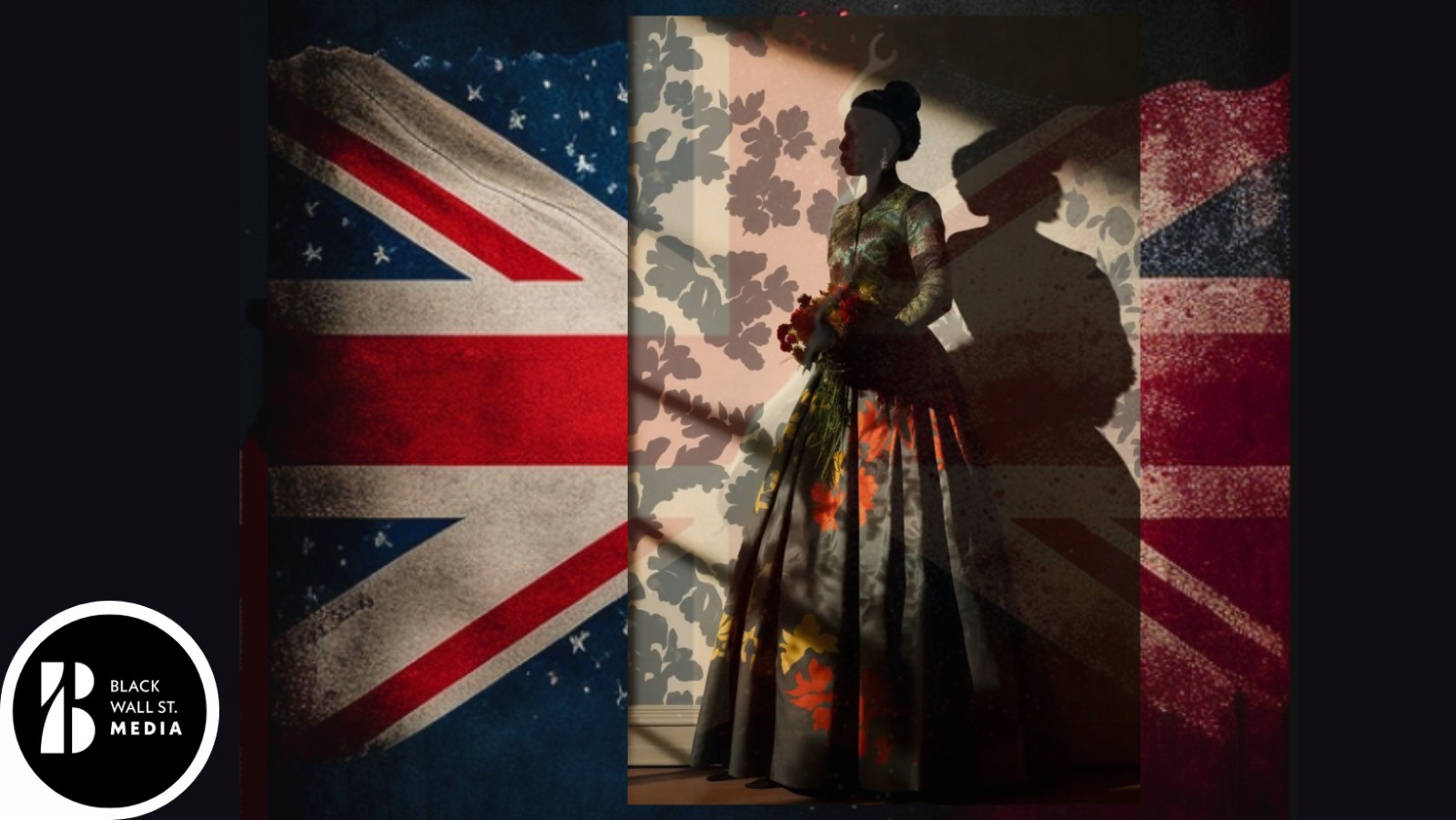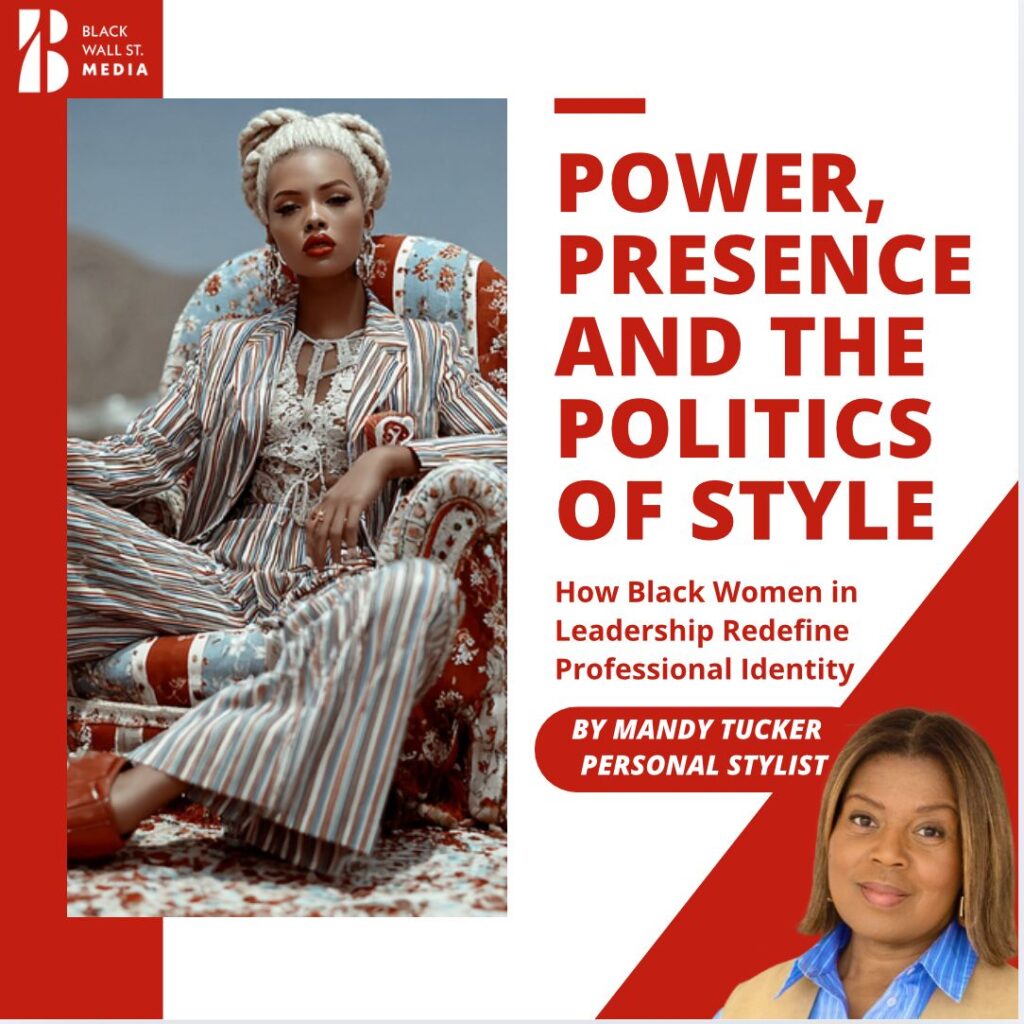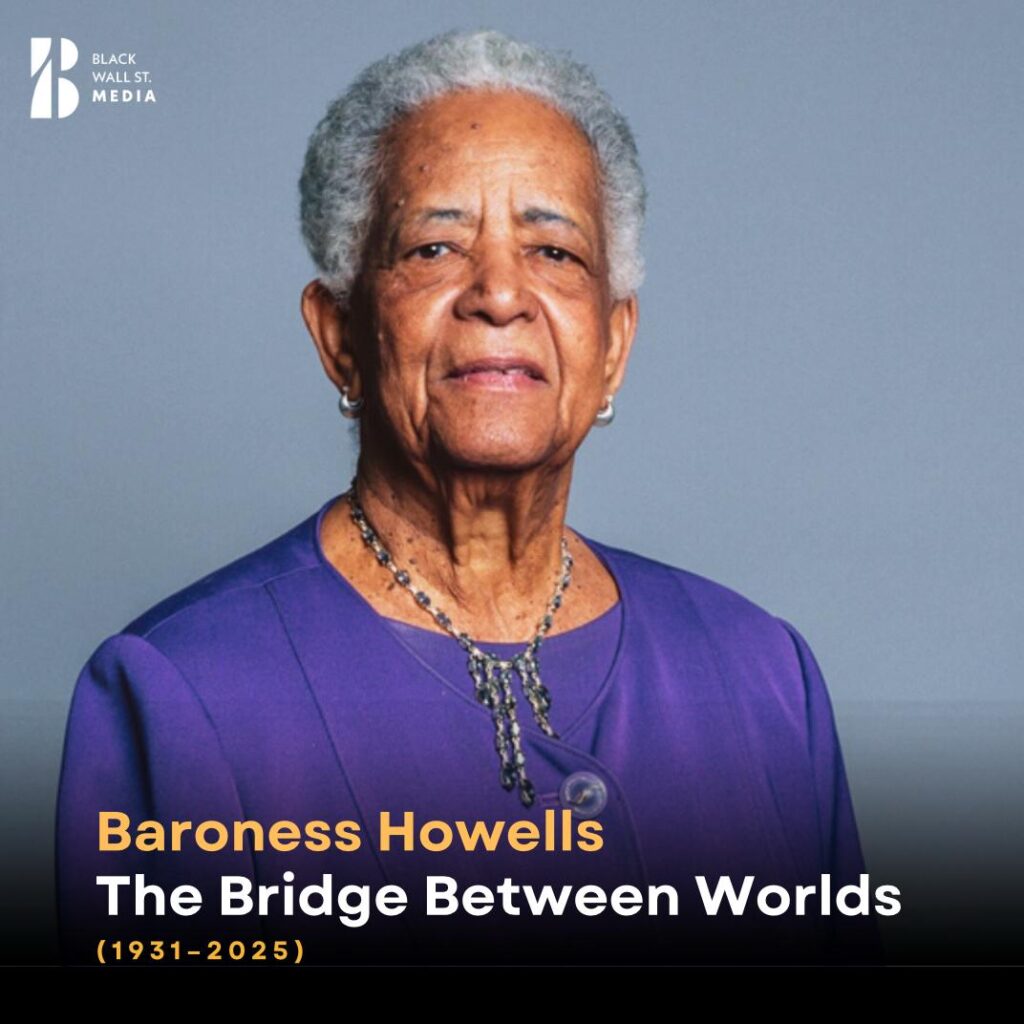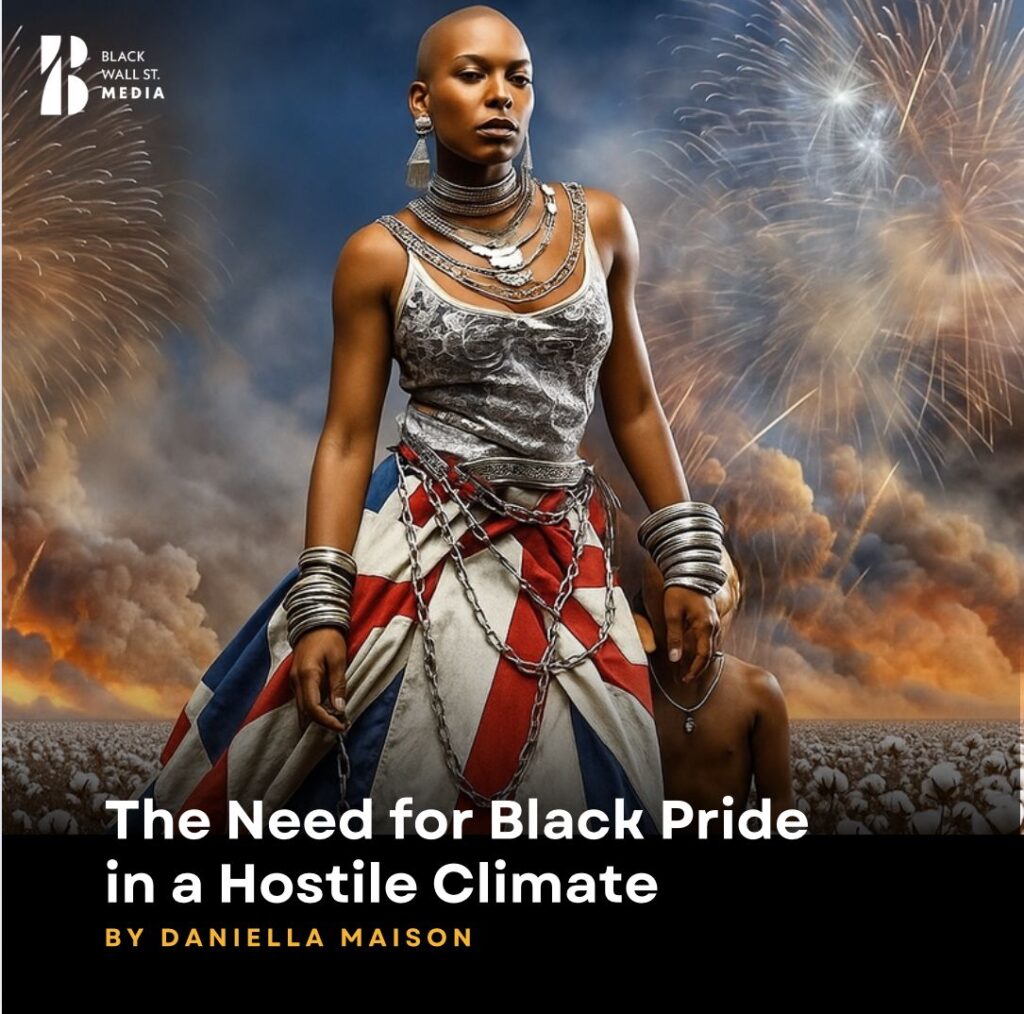Education and Social Justice
UK’s Silence on Black History
“Britain's struggles, though less vociferously discussed, have an equally profound impact; while America acknowledges its racial biases, Britain masks it under the garb of a 'British curriculum'”
Black Wall St. MediaContributor
Whitelash against Black Knowledge: The Silent Battle in the UK
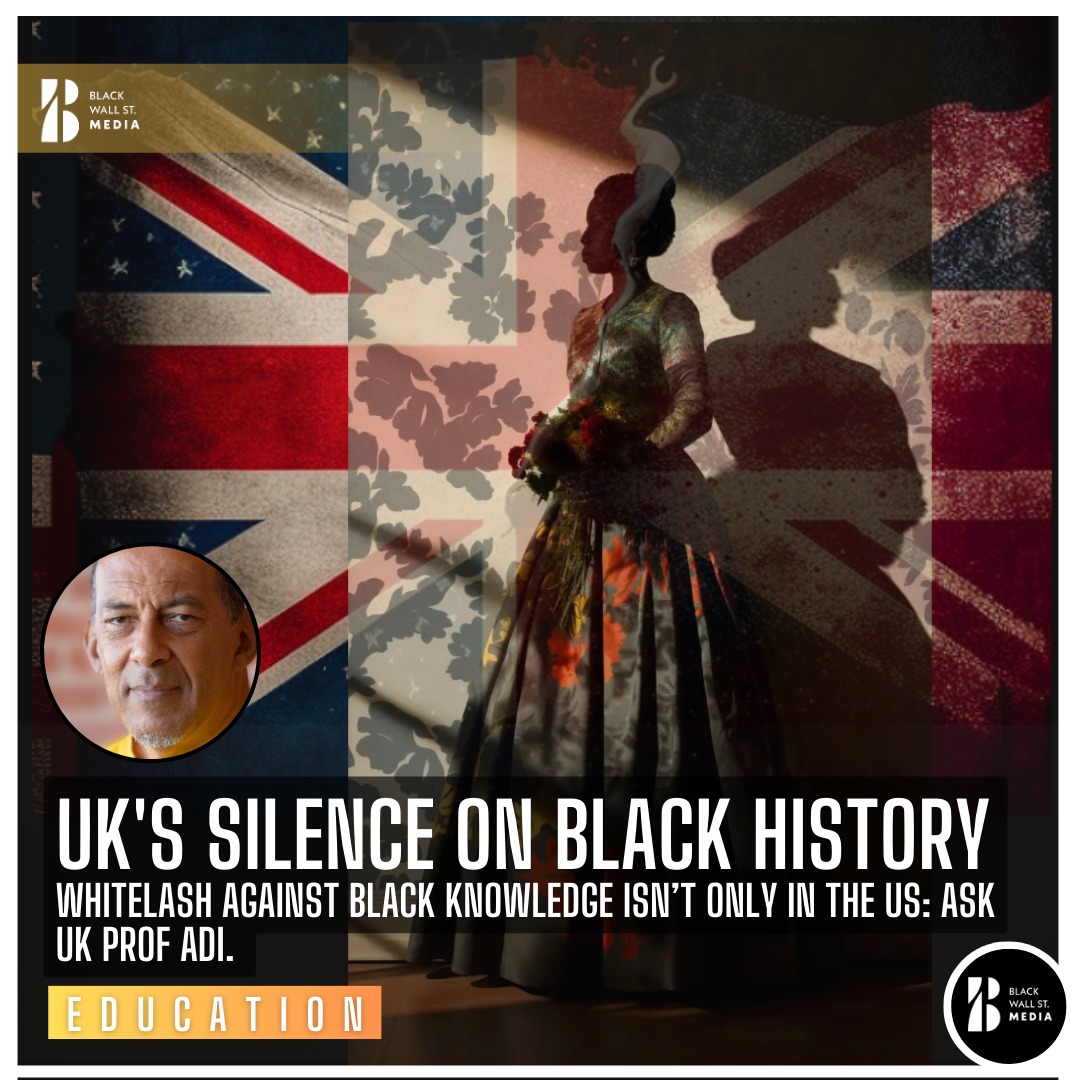
While much of the world focuses on the racial biases and discrimination faced by African Americans, it is critical to realize that the struggle extends beyond the boundaries of the U.S. In Britain, the story of Professor Hakim Adi provides a harrowing insight into how deeply rooted this Whitelash is.

A Pioneering Scholar in a Sea of Inequality
Professor Hakim Adi stands out not just for his numerous accomplishments but also because of his unique identity.
He was the pioneering beacon, being the first person of Afrikan heritage to achieve the esteemed title of a professor of history in the UK.
Another name that emerges in the same light is Professor Olivette Otele, making them the only two scholars of African descent with such a distinction in Britain.
Adi’s contributions are manifold. He championed a research master’s degree (MRes) focusing on the history of Afrika and its diaspora. His publications, especially “African and Caribbean People in Britain,” resonate with thousands, translating his research into various languages, making his work internationally acclaimed.
However, despite these monumental contributions, he faces redundancy threats as the University of Chichester considers cutting down the master’s program due to financial constraints.
The Hidden Discrimination
In an earnest conversation with Newzroom Afrika, Professor Adi shed light on the university’s reasoning. The claim lies in the program not recruiting an “adequate” number of students. But this perspective seems skewed, especially when there were no established targets. Many other master’s programs with similar student counts remain unaffected. Adi’s course was unique; it aimed at nurturing students of Afrikan and Caribbean heritage into historians, filling a glaring gap in the UK. The success is palpable; seven students have pursued Ph.D. studies under this course.
However, Professor Adi highlighted a crucial oversight: the university never took initiatives to market or promote this unique course. The potential remained untapped. Another glaring indicator of bias is the threat of redundancy to Dr. Dion Georgiou, who belongs to the Commonwealth heritage and teaches subjects related to decolonization.
The Global Whitelash: Not Just America’s Problem
While the term “Whitelash” echoes loud in the corridors of American educational institutes, it has made its presence felt across the globe. The African American Policy Forum points out that over thirty U.S. states have proposed some form of restraint in teaching concepts related to Critical Race Theory (CRT), gender justice, or equality among sexes. The whirlwind of bans, propagated by figures like Trump and DeSantis, includes the exclusion of projects like the New York Times 1619 project.
Britain’s struggles, though less vociferously discussed, have an equally, if not more, profound impact. The Eurocentric curriculum has consistently overshadowed the rich tapestry of Black contributions. The roots of this bias trace back to the late sixties when Black children entered a predominantly White school system. While America acknowledges its racial biases, Britain seems to mask it under the garb of a “British curriculum.”
Where Do We Stand Today?
The need for change is palpable. With just 0.7% of Black professors in the UK and almost no courses focusing on Black intellectual traditions, the scenario is bleak. The potential redundancy of Professor Adi threatens to leave an indelible void in Black historical studies. Institutions like BCU, which offer unique courses like Black Studies, stand out, but they are the exceptions rather than the norm.
In conclusion, it is imperative that the discourse on Whitelash isn’t confined to American borders. The struggles faced by scholars like Professor Adi underscore a deep-rooted global issue. Let’s champion the cause of Black Studies, ensuring it remains a pivotal part of our global educational agenda. Sign the petition, support campaigns like #TruthBeTold, and ensure an equal world grounded in diverse knowledge.
Black Wall St. MediaContributor

